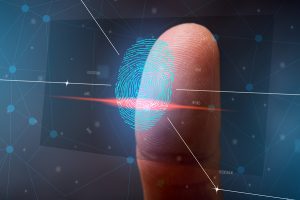
Biometrics is the use of an individual's unique physical and behavioral characteristics, typically used for identification and access control. Fingerprinting, the oldest form of biometrics, can be used for much more than identifying criminals. Fingerprint sensors have long been in use to allow individuals to login to their laptops, control physical access to buildings, track attendance of employees, and much more. Today, the focus is on improving facial recognition both for access to systems and facilities and as part of national security practices.
Facial recognition holds promise for accurately identifying who should and should not be in a specific place - whether that is a physical location like a building or an airport, or a virtual one like a set of classified files. However, the technology is not as reliable as the market requires. The impact of false positives and missed identities are measurably bigger when you are talking about identifying someone on a terror watch list rather than simply being locked out of your cell phone. There is considerable work being done to close the gaps between the promise of facial recognition and the reality of today's technology.
In a world where we are conducting more and more business online, biometric identification seems like a no-brainer for increasing the security of accessing personal data. But there is a privacy concern. Using biometrics means that organizations have access to very personal credentials and a recent ruling showed that the FBI does not need to disclose what biometric data it has on citizens.
As the privacy details are worked out and the technology evolves, government is continuing to develop new uses for biometrics including tracking homeless populations to better provide services, improving airport security, and securing access to data via mobile devices.
There are a number of upcoming events that can provide training and insight into the future of biometrics as a key part of government IT.
- Global ID Summit (September 17-19, 2018; New York, NY) - This event brings together 200+ Secretaries, Directors of Security Agencies, Heads of Acquisition, Biometric Program Managers, Academia and Industry Experts from the U.S. and International partners to discuss the challenges and successes shaping national and global security. Topics include establishing global standards and requirements for integrating identity systems; leveraging iris, fingerprint, facial, voice, rapid DNA and identification tools and applications to enhance law enforcement operations; and best practices for building private public partnerships.
- Federal Identity Forum and Exposition (September 25-27, 2018; Tampa, FL) - This event is the U.S. federal government's primary outreach and collaboration-building event with the worldwide identity community. It provides an immersive environment for identity professionals from the federal government, private sector and academia to participate in strategic planning, information sharing, needs analysis, collaboration and relationship building.
- IEEE 9th Annual International Conference on Biometrics (October 22-25, 2018; Los Angeles, CA) - Focused on the theory, applications, and systems of biometrics, this event is a forum for computer scientists and engineers from around the world to present their latest research findings and share new ideas and applications in biometric technology. Discussions will include analysis of specific applications and analysis of the social impact of biometric technology.
- Fall 2018 IPSA Symposium (November 14-15, 2018; Alexandria, VA) - The International Public Safety Association's annual show covers a wide variety of topics. Biometric technology will be demoed and discussed in several of the topic streams.
- Securing Digital ID (December 4-5, 2018; Alexandria, VA) - This authentication showcase features experts who will explore, explain, debate and share their knowledge and experiences about today's complex world of digital identities and how they are used for strong authentication and authorization purposes. Speakers will detail what today's digital identity solutions and authentication technologies can do to help, what challenges organizations face in balancing security vs. convenience, what policies are either in place or being developed that help guide common practice, and what standards are doing to drive increased ubiquity and interoperability across solutions.
Are there any other events that provide insight into the growing practice of biometrics? Share your experience in the comments.




